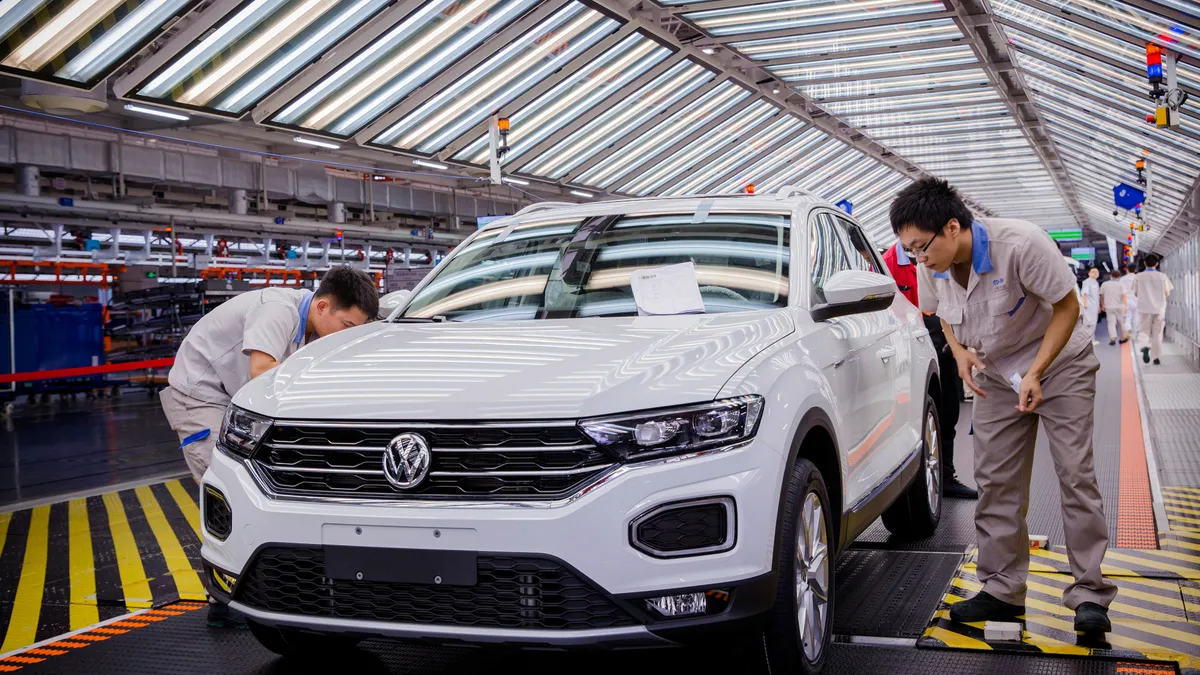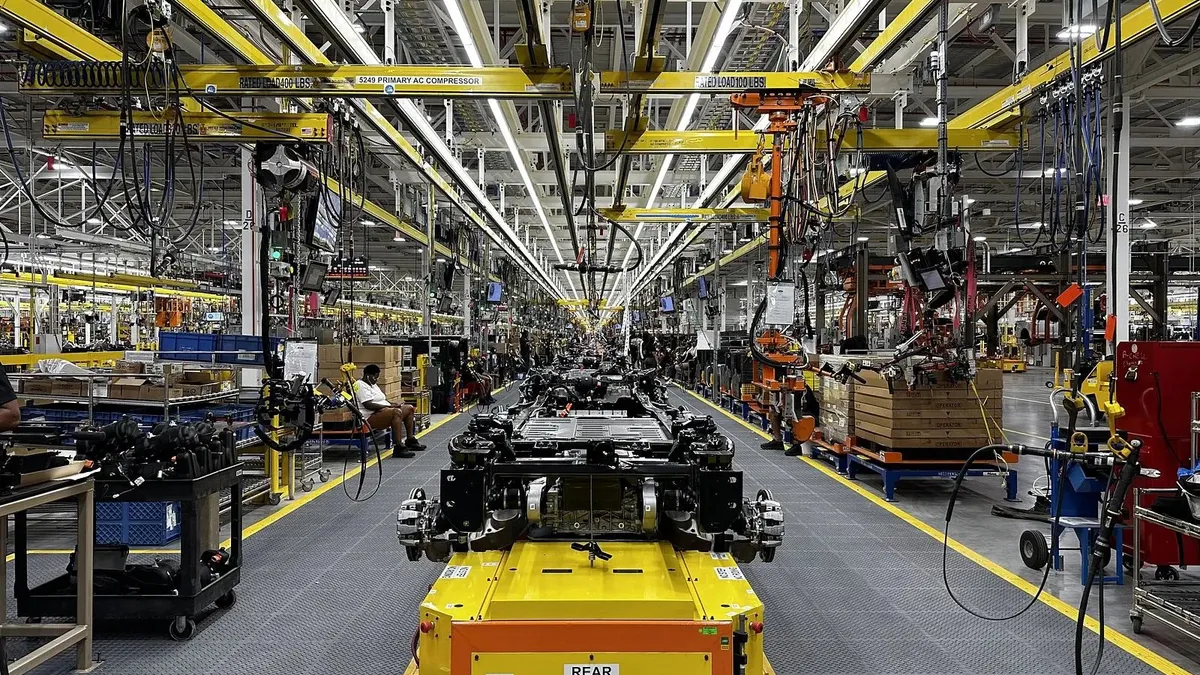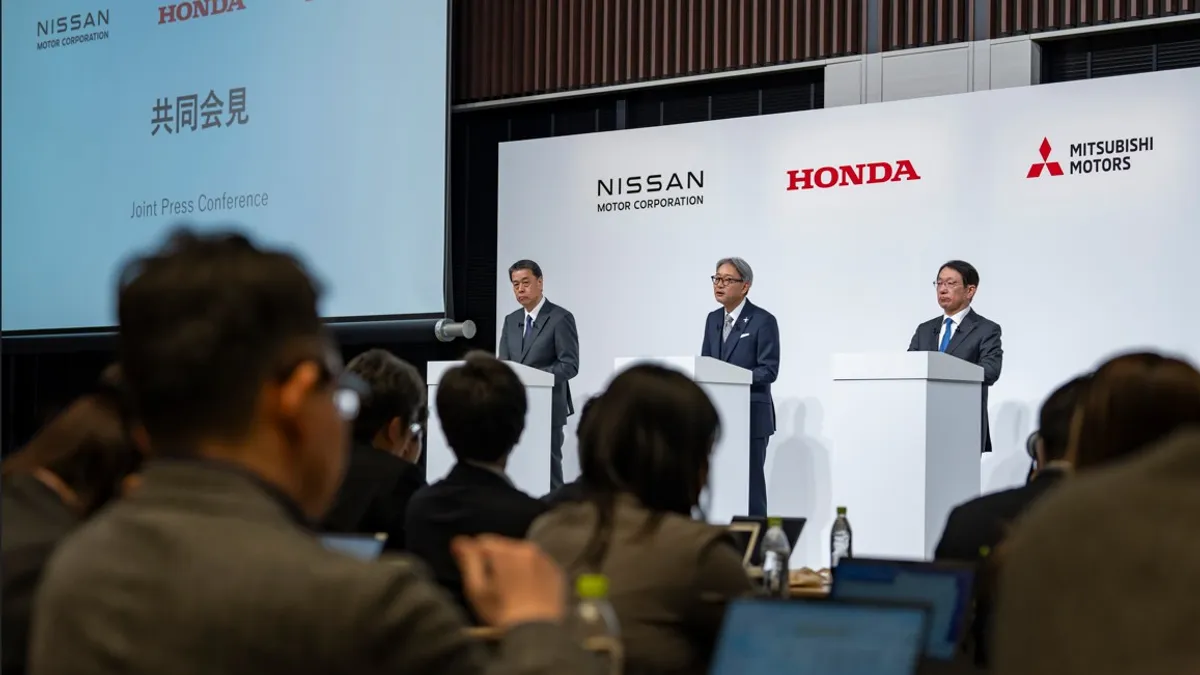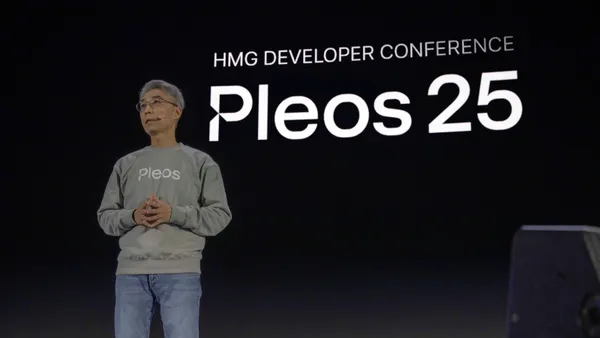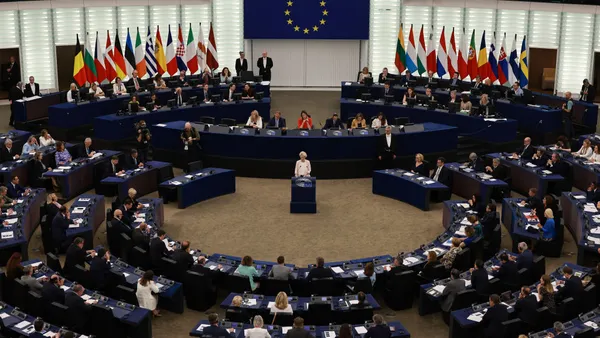Dive Brief:
- To mark the 40th year of their collaboration, Volkswagen Group and SAIC Motor agreed to extend their joint venture until 2040, a 10-year addition to the original agreement, according to a November press release.
- SAIC Volkswagen’s “In China, For China” strategy is accelerating electrification efforts due to “dynamic market development,” the release said. The joint venture will launch 18 new models by 2030, including eight electric vehicles.
- The companies’ will also speed up the transformation of SAIC Volkswagen's production network, focusing on cost-effectiveness and productivity, as EV demand and competition grows.
Dive Insight:
Volkswagen Group has faced declining profits in China — its largest single market — due to stiff competition, according to its interim financial report. In the first three quarters of 2024, the company delivered 10% fewer vehicles to customers in China than the previous year.
As a result, the automaker and its brands aim to bring 40 new models to the China market, half of which will be electrified. It plans to offer more than 30 electric models in the market by 2030.
SAIC Volkswagen intends to introduce two EVs as early as 2026, built on its new, locally developed Compact Main Platform, which utilizes zonal electric architecture for the first time in Volkswagen Group history, the release said.
Ralf Brandstätter, board member of Volkswagen AG for China, said that by continuing to integrate into the innovation ecosystem in China, the automaker is ensuring the partnership remains economically and technology future proof.
“This also creates a strategic competitive advantage for the Volkswagen Group worldwide,” he said in the release about the joint venture’s extension.
Wang Xiaoqiu, chairman of SAIC Motor said electrification and transforming the car into an intelligent vehicle are defining trends in the automotive industry.
“The decisive factors here are consistent customer orientation, quality management and the use of our own innovative strength,” he said. “We will break new ground with ‘China Speed.’”
Many of SAIC Volkswagen’s sites are being or have already been converted to produce EVs, but the joint venture has also sold a few of its sites in the market, including Urumqi, Turpan and Anting, as part of its strategic realignment.
In addition to its partnership with SAIC, Volkswagen has also recently turned to other joint ventures to develop its EV technology. Last month, Volkswagen launched its joint venture with Rivian — a new company called “Rivian and VW Group Technology” — which will develop electrical/electronic architecture and software for vehicles. A VW vehicle was retrofitted to run on Rivian’s zonal design, according to a press release.
It was not specified if SAIC Volkswagen is tapping into the automaker’s other joint venture for its zonal electric architecture.



